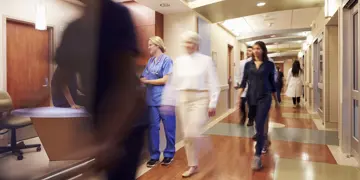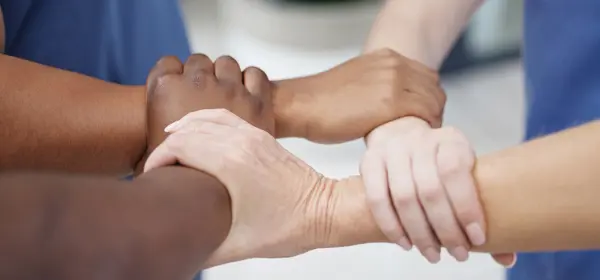Doctors share concerns about demand during winter
Doctors share concerns about demand during winter
NHS not adequately prepared to cope with number of patients, BMA Scotland survey finds
Doctors in Scotland believe that the NHS is operating in ‘crisis mode’ all year round – with one warning that it’s become normal to be running at 120% capacity, with patients backed up in corridors.
A survey of 980 doctors conducted by BMA Scotland found that 99% were either very concerned or concerned about the impact of increased demand over winter, and that most don’t believe the NHS is adequately staffed to cope with the pressure.
BMA council chair Iain Kennedy warned that without transformative and urgent reforms, NHS Scotland would struggle to see out another year – and that the very founding principles of the NHS were at risk.
‘We know the NHS is valued and that, politically, all agree with the founding principle of “free at the point of need”, Dr Kennedy said. ‘What needs to be put in place are measures that protect our health service for the long-term, giving the system stability and patients peace of mind.
‘We are only at the start of the winter period and yet we are already seeing examples of an NHS that is desperately struggling with the demands and expectations being placed on it. Doctors have spoken about consistent pressures being felt all year round, and we know patients are not accessing health care in a timeous manner. There has been warning after warning, and to be frank the time for words has now passed, in the coming year there needs to be action in the form of reform.’
'We are sinking'
Almost 600 of the doctors surveyed also took the opportunity to share their concerns, with most expressing worries about the impact on patients.
One secondary care doctor said: ‘We feel like we are sinking. We are working hard to get patients fit for theatre, but the lack of elective beds means we continue to cancel patients. We can never get on top of elective surgery demand with the model we currently have.’
Meanwhile a GP responded that they felt like they were the ‘last safety net in a crumbling system’ and that without urgent action, this winter could be ‘catastrophic’ for patients and staff. Another warned that ‘this may be the last year of universal GP coverage in Scotland’ as practices collapse.
A secondary care doctor said: ‘It has become the norm to be operating at 115-120% capacity and have between ten and 20 admissions sleeping in the ED overnight in corridors. The system is broken and needs to be addressed as an emergency.’
Dr Kennedy, a GP in Inverness, said the survey responses were ‘stark, but very real’, and showed that doctors on the front line were facing moral distress and injury on a daily basis because they felt unable to provide the care patients deserved.
‘What was apparent in our survey was the frustration doctors feel at not being able to do the best we can for the people we care for, with patient’s needs featuring in 70% of written responses. Doctors are finding themselves working in a system that is neither prepared nor staffed adequately. They are struggling to cope in an NHS that is in constant crisis, which is both mentally and physically exhausting. While there are continuous pressures on the NHS, we are only too aware that at this time of year there is always an additional winter surge, higher demand due to seasonal illness and bad weather, which just emphasises the inability of the health service to cope with what we ask of it.’
NHS at risk
He said reform had to be transformative rather than simply plugging gaps with short-term funding – and that there needed to be a whole-system approach.
He said 86% had no confidence in the Scottish Government to put the NHS on a sustainable footing, despite ‘warm words’ in the recent Scottish budget, which included a record £21bn for health and social care.
‘The NHS as we know it will struggle to see out another year, as its founding principles, which we all value so highly will be at risk with more and more people forced to go private or simply left to suffer as they cannot access the care they need, when they need it,’ Dr Kennedy said.
‘It is not too late to turn this around and protect our NHS but now is the time to finally act and set out a clear plan to get to grips with the many complex issues we face.’



